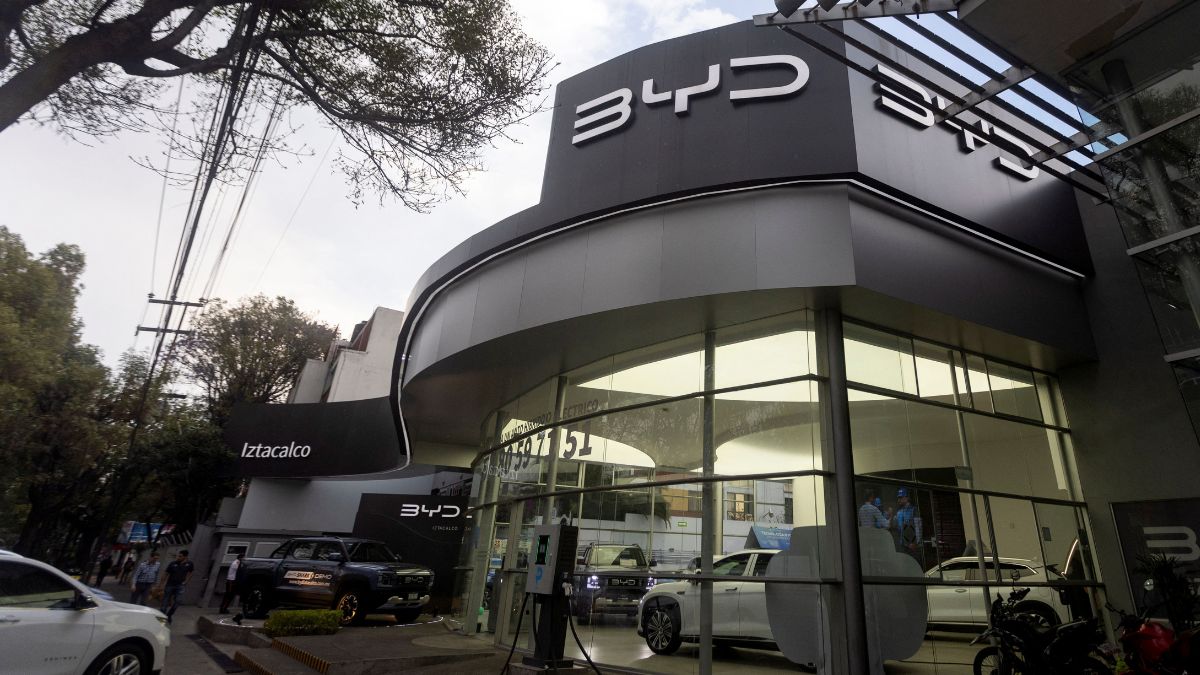China’s companies are in a war over electric vehicles (EVs).
Automakers are slashing prices to win over the public and top executives are trading barbs.
Now, the People’s Daily newspaper – controlled by the Chinese Communist Party – is adding its voice to the fray.
The newspaper has warned carmakers to desist from the practice of selling ‘zero-mileage’ used cars.
The development comes a month after a car company founder first brought up these “zero-mileage” cars in an interview.
It also came after the country’s commerce ministry in May met automakers including BYD and Dongfeng Motor and industry groups such as the China Association of Automobile Manufacturers (CAAM) and the China Automobile Dealers Association (CADA) to discuss the matter.
But what do we know about this practice and these cars? What about the tussle over EV sales?
Let’s take a closer look
What do we know about this practice and these cars?
Under this practice, EV companies essentially sell brand new cars at heavily discounted rates.
This is done to get rid of excess inventory sitting with car dealers.
These ‘zero-mileage cars’ are usually sold to second-hand dealers or financing companies.
These vehicles then turn up on the resale market with zero kilometres on their odometers.
Meanwhile, manufacturers get to claim these cars are sold despite them not being in the hands of a customer – which helps them put a better spin on their sales numbers.
The issue was first brought up by Great Wall Motor Company chairman Wei Jianjun last month.
Wei, during the interview, referring to the practice, claimed that the auto industry had “its own Evergrande” — a pointed reference to the real estate giant that went out of business.
Wei said between 3000 and 4000 vendors on China’s used-car platforms were selling such ‘zero-mileage’ vehicles.
Why is this happening?
Wei claimed this development was a result of the long-standing price wars between China’s EV makers.
The Chinese auto industry in recent years has struggled due to domestic consumption declining while producing cars at an excess capacity.
Many car makers are now struggling to meet their sales targets and are offering heavy discounts to try to lure customers.
In May, automaker BYD cut the prices of nearly two dozen electric and plug-in models by up to 34 per cent – a move that left its competitors stunned and sent share prices of companies including its own tumbling.
“We expect BYD’s vehicle margin would be under pressure in the short term as I think this move by them is driven by the need to hit their sales targets,” Victor Sun, senior equity analyst at Morningstar, told CNBC.
Bloomberg analyst Tim Hsiao added that the move may result in a “prolonged price war” between EV firms.
All this comes in the backdrop of China, which is already experiencing growing deflationary pressures, now having to deal with US tariffs.
The world’s second largest economy is already seeing a number of industries cutting prices including fashion, fast food and lifestyle.
What did the newspaper say?
The People’s Daily newspaper – which is a mouthpiece of the CPC and reflects the opinions of its top officials – has strongly come out against this practice.
The newspaper in its editorial demanded “tough regulatory action” from officials.
“This disguised form of price cutting disrupts normal market order and is a striking example of the auto industry’s ‘involution’,” the People’s Daily said.
The term is often used in China to define a race to the bottom driven brought on by excessive competition.
“Once market competition rules are properly enforced, ‘zero-mileage used cars’ won’t be able to run far — or for long,” the editorial added.
“For manufacturers, this sales tactic may help reduce inventory in the short term but compresses profit margins, increases losses, and hinders investment in product quality and innovation — ultimately harming sustainable development,” the article added.
“For consumers, what seems like a good deal in terms of price comes with hidden risks: the loss of first-owner benefits, potential battery degradation, and steeper depreciation when reselling.”
The newspaper demanded that EV makers move past “data worship” and churning out cars.
It urged them to focus on quality products and innovating technologically.
However, It stopped short of naming and shaming any specific automakers.
It also called on authorities to undertake a number of measures to counter this practice.
This included more control over the process of registering second-hand vehicles, establishing a vehicle lifecycle tracking system, and strictly controlling the practice of immediate resale after registration.
With inputs from agencies
)